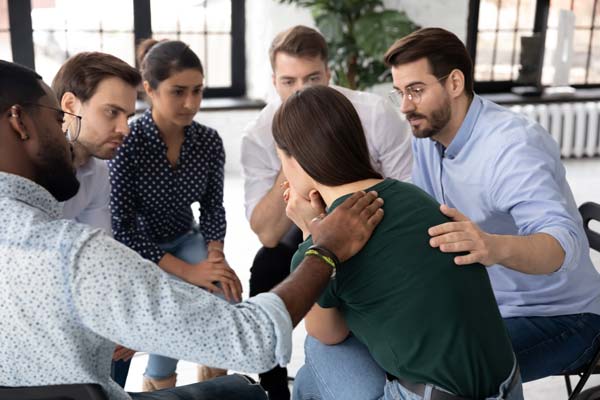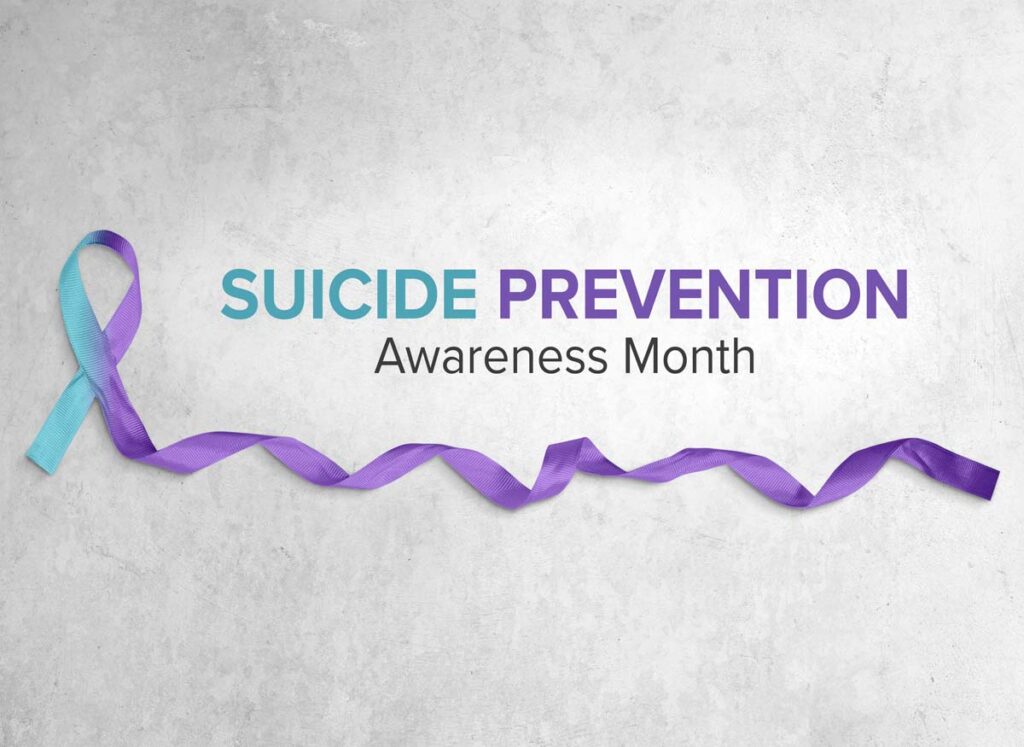- September 6, 2024
- By: Singing River Services
- No Comments
Suicide Prevention: Help, Healing, and Mental Health
With September being Suicide Prevention Month, there is increased awareness of the roles each of us can play in saving lives. Suicide remains a leading cause of death in the United States, impacting individuals, families, and entire communities. The Substance Abuse and Mental Health Services Administration (SAMHSA) emphasizes that while the statistics are alarming, prevention is possible. By raising awareness, supporting those at risk, and promoting mental health resources, we can all contribute to a culture of caring.
Suicide: Part of A Public Mental Health Crisis
According to the Centers for Disease Control and Prevention (CDC), suicide is the 12th leading cause of death in the United States, with over 45,000 deaths in 2020 alone. It impacts people of all ages, races, and socioeconomic backgrounds. But the tragedy of suicide extends beyond the statistics—each loss leaves a lasting impact on loved ones and communities.
SAMHSA recognizes suicide as a public health crisis and is dedicated to providing tools and resources to prevent it. The organization’s approach is comprehensive, focusing on prevention, early intervention, and access to mental health care.
Recognizing the Warning Signs
Understanding the warning signs is key to preventing suicide. People who may be considering suicide show warning signs, such as:
- Talking about wanting to die or feelings of hopelessness
- Increasing substance use
- Withdrawing from friends, family, or society
- Unusual changes in behavior, mood, or appearance
- Expressing feelings of being trapped or in unbearable pain

If you notice any of these behaviors in someone, don’t be afraid to reach out, listen without judgment, and offer to help them find professional support.
SAMHSA’s Resources for Prevention and Support
SAMHSA provides a wealth of resources to assist in suicide prevention, many of which can be accessed by individuals, families, and healthcare professionals:
- 988 Suicide & Crisis Lifeline: In 2022, SAMHSA launched the 988 Suicide & Crisis Lifeline to provide a quick and easy-to-remember number for anyone experiencing a mental health crisis. People can call, text, or chat 988 to be connected to trained crisis counselors 24/7.
- National Helpline: SAMHSA’s confidential helpline (1-800-662-HELP) offers free information and referrals to local treatment services for mental health and substance use disorders.
- Look for the Certified Community Behavioral Health Clinics Model of Care: CCBHCs provide a variety of resources for individuals, communities, and organizations working to assist in mental health care with government funding, so there is easier access for more.
Steps We Can All Take
While there are many resources online and organizations willing to step in and help at a moment’s notice, sometimes the most effective form of prevention is knowing someone close to them cares. All of us can make a lifesaving impact on someone’s life and there are simple ways to do that:
- Have Open Conversations: Don’t be afraid to talk about mental health. Check-in with family and friends, ask how they are feeling, and be ready to listen without judgment. Research shows that asking someone about suicide does not increase their risk but can help open a pathway to support.
- Spread Awareness: Share information and resources, such as the 988 Lifeline, on social media or in your community. Increasing awareness of these resources can connect someone in crisis to life-saving help. Offer to reach out on their behalf if they are afraid or worried.
- Encourage Professional Help: If someone you know is having a hard time, encourage them to reach out to a mental health professional. You can also volunteer to start the process for them, to lighten the burden. SAMHSA’s National Helpline can guide individuals to appropriate care, whether they need therapy, counseling, or support for substance use disorders.
- Prioritize Self-Care: Don’t forget to care for your own mental health. Seeking support when you feel overwhelmed, anxious, or depressed is not a sign of weakness—it’s a step toward healing and overall wellness.

Let’s Make a Difference in September and Beyond
Suicide is preventable, and each of us can play a role in making a difference. This Suicide Prevention Month, let’s commit to being more aware, more compassionate, and more connected to the people around us. By understanding the warning signs, sharing resources like the 988 Lifeline, and encouraging open conversations about mental health, we can help save lives.
Certified Community Behavioral Health Clinics (CCBHC), like Singing River Services, are modeled to have approaches for anyone in crisis.
CCBHCs are available 24/7 and offer personal and family mental health screening, care, and counseling services.



